Acclaim for
ADAM PHILLIPS
The right reader, seduced by Monogamys wry aperus, tickled by its insights, and ravished by its provocations, only has to lie back and enjoy. I wish this book all the eager and expert partners Don Juan ever dreamed of.
Michele Roberts, The Independent on Sunday
This is no book of bromides in Monogamy, the prominent British psychoanalyst goes on a philosophical 360-degree preconceptionbursting spree.
Time Out New York
Adam Phillips may be the closest thing we have to a philosopher of happiness.
Adam Mars-Jones
The psychotherapist of the floating world his genius is the way in which he voices all those things we knew instinctively but could not find words for.
Observer
Like Chekov, Phillips writes as well as he doctors, and his fascination with the subtleties of human behavior makes him a good storyteller. He has welcome openness to the essential strangeness of every person; this alone is reason enough to read him.
Guardian
Phillips is one of the most intelligent and humane of psychoanalytic writers.
Alain de Botton, Sunday Telegraph
Copyright 1996 by Adam Phillips
All rights reserved under International and Pan-American Copyright Conventions. Published in the United States by Vintage Books, a division of Random House, Inc., New York, and simultaneously in Canada by Random House of Canada Limited, Toronto. Originally published in Great Britain by Faber and Faber Limited, London, in 1996. First published in hardcover in the United States by Pantheon Books, a division of Random House, Inc., New York, in 1997.
Vintage Books and colophon are registered trademarks of Random House, Inc.
The Library of Congress has cataloged the Pantheon edition as follows:
Phillips, Adam.
Monogamy / Adam Phillips.
p. cm.
1. Marriage. 2. Man-woman relationships. 3. Intimacy
(Psychology). 4 Unmarried couples.
5 Adultery. I. Title.
HQ728.P49 1997
306.81dc20
96-27857
eISBN: 978-0-307-77276-3
www.randomhouse.com/vintage
v3.1
If you take in a lie, you must take all that belongs to it.
Emerson, English Traits
Contents
PREFACE
The present controversies about family valuesabout marriage and the divorce rateare really discussions about monogamy. About what keeps people together and why they should stay together. About how people decide which are the important pleasures. What are couples for if they are not for pleasure? And if pleasure doesnt matter then what does? This, one could say, is the problem of monogamy.
Certainly, to talk about monogamy is to talk about virtually everything that might matter. Honesty, murder, kindness, security, choice, revenge, desire, loyalty, lying, risk, duty, children, excitement, blame, love, promising, care, curiosity, jealousy, rights, guilt, ecstasy, morals, punishment, money, trust, envy, peace, loneliness, home, humiliation, respect, compromise, rules, continuity, secrecy, chance, understanding, betrayal, intimacy, consolation, freedom, appearances, suicide, and, of course, the family. Monogamy is not simply about these things, among others; but when we talk about monogamy we cannot help but talk about these things as well. Monogamy is a kind of moral nexus, a keyhole through which we can spy on our preoccupations.
For some of usperhaps the fortunate, or at least, the affluentmonogamy is the only serious philosophical question. This book is, therefore, an enquiry into the word we.

1

N ot everyone believes in monogamy, but everyone lives as though they do. Everyone is aware of lying or wanting to tell the truth when loyalty or fidelity are at stake. Everyone thinks of themselves as betraying or betrayed. Everyone feels jealous or guilty, and suffers the anguish of their preferences. And the happy few who apparently never experience sexual jealousy are always either puzzled about this or boast about it. No one has ever been excluded from feeling left out. And everyone is obsessed by what they are excluded from. Believing in monogamy, in other words, is not unlike believing in God.

2

O nce we know the rules of a game we can think about our performance, we dont have to worry about the game. We take some things for granted so that we can take other things for something else.
Infidelity is such a problem because we take monogamy for granted; we treat it as the norm. Perhaps we should take infidelity for granted, assume it with unharrassed ease. Then we would be able to think about monogamy.

3

P rofoundly committed to the better life, the promiscuous, like the monogamous, are idealists. Both are deranged by hope, in awe of reassurance, impressed by their pleasures. We should not be too quick to set them against each other. At their best, they are both the enemies of cynicism. It is the cynical who are dispiriting because they are always getting their disappointment in first.

4

I nfidelity is as much about the drama of truth-telling as it is about the drama of sexuality. It is only because of sexuality that we think about truth at all; that we find honesty and kindness at odds with each other.
The successful lie creates an unnerving freedom. It shows us that it is possible for no one to know what we are doing. The poor liethe wish to be found outreveals our fear about what we can do with words. Lying, in other words, is not so much a way of keeping our options open, but of finding out what they are. Fear of infidelity is fear of language.

5

C oupledom is a performance art. But how does one learn what to do together? How to be, once again, two bodies in public, consistently together, guardians of each others shame, looking the part? Where do the steps come from?
This is where good-looking couples can be so reassuring, inspiring even. Waylaidas they often areby their beauty, we can conspire, briefly, to be shameless, like them. To have nothing to hide. Good looks, after all, are our best cultural anti-depressant. They keep the show on the road.


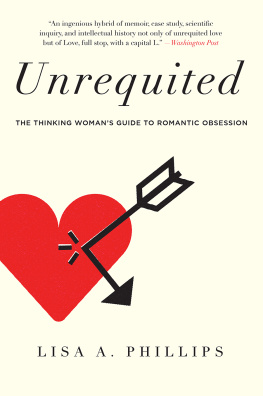
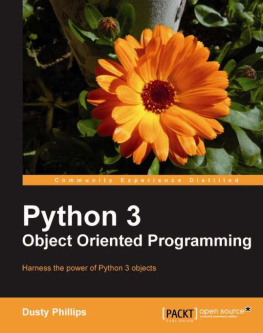

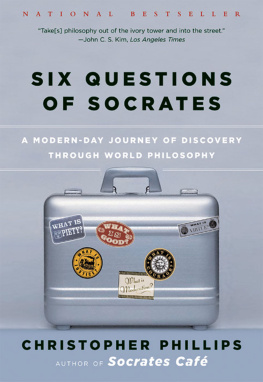
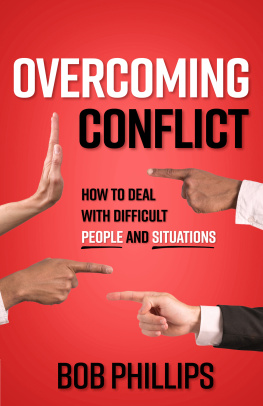
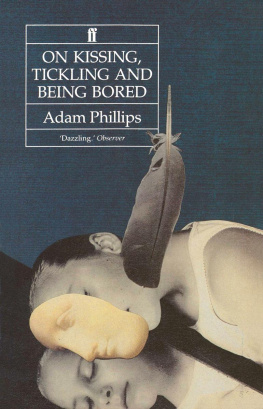
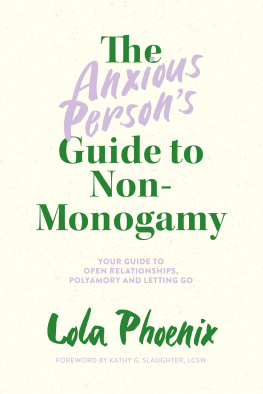

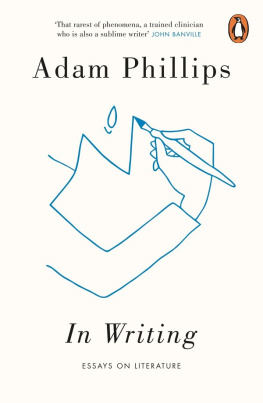

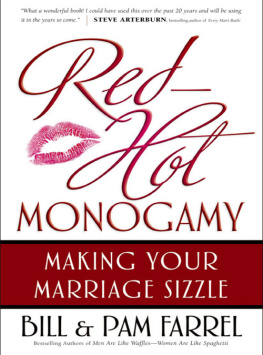


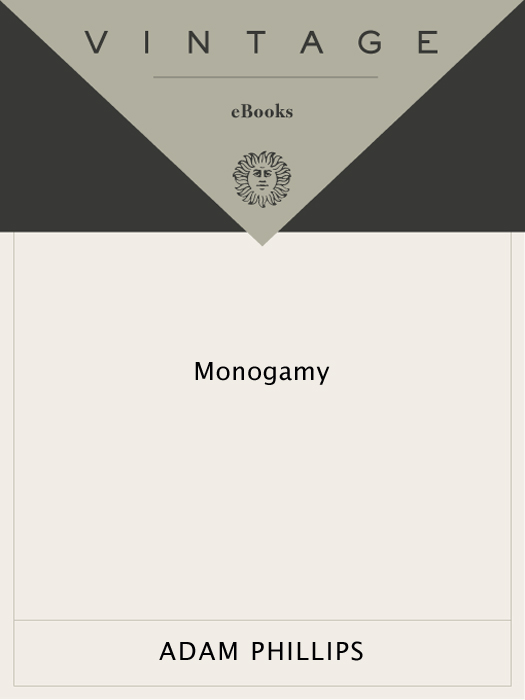

 1
1 